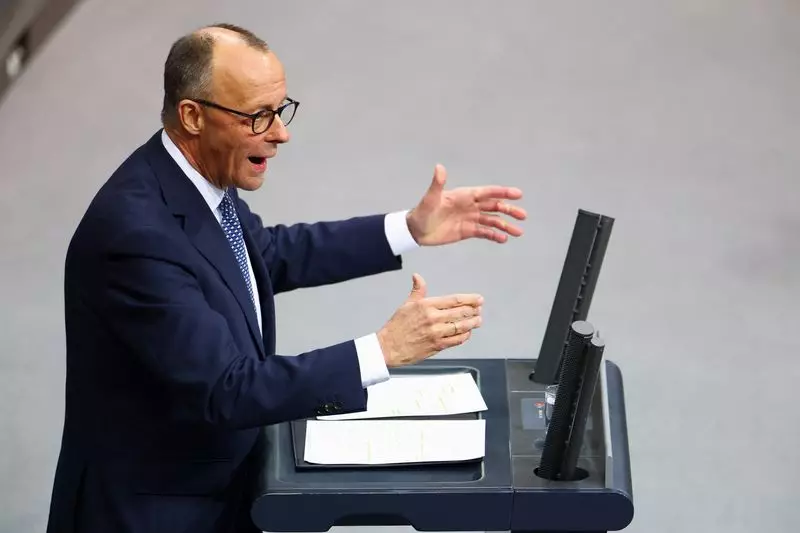After a tumultuous political climate, Germany finds itself on the brink of a significant electoral event, where the stakes could not be higher. As Germany’s leading political factions prepare to present their manifestos, voters are left contemplating the multifaceted challenges facing Europe’s largest economy. This article delves into the potential implications of the upcoming elections, the socio-economic parameters at play, and the nuanced policy positions that could shape the future of Germany.
The collapse of Chancellor Olaf Scholz’s three-way coalition marks a pivotal moment in Germany’s political history, forecasting a precarious electoral landscape for the upcoming snap elections scheduled for February 23. Scholz, often regarded as one of the least popular leaders in modern German history, has seen his coalition disintegrate under the pressures of economic stagnation and rising political polarization. Voters are skeptical, with many seeking an alternative to what they consider ineffective leadership during one of the most challenging economic periods faced by the nation.
The immediate impetus for the snap elections stems not only from Scholz’s unpopularity but also from a surge in support for far-right parties, notably the Alternative for Germany (AfD). The AfD’s growing influence demonstrates a shift in public sentiment towards nationalism and conservatism, a trend that mirrors changes observed in various parts of Europe.
As the parties prepare to unveil their manifestos, economic recovery takes center stage. Germany’s economy, having contracted for successive years, faces dire challenges. Major corporations, such as Volkswagen, find themselves grappling with fierce competition from foreign entities while traditional sectors struggle against technological advancements. The economic revival plans laid out in the manifestos are crucial; they will likely address not only growth strategies but welfare reform and labor market issues.
The Christian Democratic Union (CDU), led by Friedrich Merz, advocates for tax cuts and reduced electricity costs as a method of revitalizing the economy. This strategy emphasizes market stimulation through decreased financial burdens on businesses and consumers alike. However, questions arise about the sustainability and long-term impact of such tax reductions.
In contrast, Scholz’s Social Democrats (SPD) aim to modify the restrictive debt brake, arguing for higher government investment in areas like infrastructure and technology. The SPD introduces an enticing plan that includes a substantial off-budget fund — a strategy that could signal a departure from austerity measures while promoting economic growth.
Foreign policy, particularly regarding defense and the ongoing conflict in Ukraine, remains an area of contention among the political factions. Germany’s increased military funding under Scholz has positioned it as a key ally for Ukraine, a departure from its historical reluctance to engage in military conflicts. Merz, however, is advocating for even stronger support, proposing the provision of advanced weaponry that could escalate tensions with Russia.
Simultaneously, the AfD’s stance reflects a desire to pivot back towards a more amicable relationship with Moscow, rejecting military aid to Ukraine altogether. This schism within Germany’s political spectrum on such a pressing international issue highlights the broader ideological divide that influences domestic and foreign policy decisions.
Migration remains a polarizing topic within Germany, particularly as the nation wrestles with the legacy of the 2015 migrant crisis. Initially known for its humanitarian approach, the German government has since adopted more stringent border controls and asylum processes, a reflection of shifting public opinion towards migration.
The CDU under Merz proposes stricter measures to deter incoming migrants, suggesting the potential establishment of third-party nations to manage asylum claims. Such proposals signal a significant shift from the compassionate policies of the past and reinforce fears surrounding immigration amid economic uncertainty.
The approaching elections represent a critical juncture for Germany, marked by economic uncertainty, rising nationalism, and complex international relations. As political factions stake their positions and campaign vigorously, the electorate must navigate a landscape fraught with challenges that demand thoughtful and pragmatic solutions.
Ultimately, the choices made on February 23 will not only influence the future trajectory of Germany’s domestic policy but also its role in a tenser geopolitical climate. The decisions and underlying sentiments captured in the manifestos could either solidify Germany’s position in Europe or propel the nation into uncharted, potentially perilous territory.

